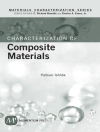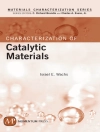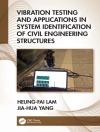Hydrostatic Transmissions and Actuators takes a pedagogical approach and begins with an overview of the subject, providing basic definitions and introducing fundamental concepts. Hydrostatic transmissions and hydrostatic actuators are then examined in more detail with coverage of pumps and motors, hydrostatic solutions to single-rod actuators, energy management and efficiency and dynamic response. Consideration is also given to current and emerging applications of hydrostatic transmissions and actuators in automobiles, mobile equipment, wind turbines, wave energy harvesting and airplanes. End of chapter exercises and real world industrial examples are included throughout and a companion website hosting a solution manual is also available.
Hydrostatic Transmissions and Actuators is an up to date and comprehensive textbook suitable for courses on fluid power systems and technology, and mechatronics systems design.
Table des matières
Preface xiii
Acknowledgements xvii
About the Companion Website xix
1 Introduction to Power Transmission 1
1.1 Transmission Ratio 1
1.2 Mechanical Transmissions 4
1.3 Hydraulic Transmissions 15
1.4 Hydrostatic Transmissions 19
1.5 Hydromechanical Power-Split Transmissions 40
1.6 Mechanical and Hydrostatic Actuators 51
Exercises 56
References 57
2 Fundamentals of Fluid Flows in Hydrostatic Transmissions 59
2.1 Fluid Properties 59
Exercises 94
References 96
3 Hydrostatic Pumps and Motors 98
3.1 Hydrostatic and Hydrodynamic Pumps and Motors 98
3.2 Hydrostatic Machine Output 102
3.3 Hydrostatic Pump and Motor Types 117
3.4 Energy Losses at Steady-State Operation 135
3.5 Modelling Pump and Motor Efficiencies 141
Exercises 162
References 164
4 Basic Hydrostatic Transmission Design 166
4.1 General Considerations 166
4.2 Hydrostatic Transmission Efficiency 168
4.3 Transmission Output 183
4.4 Steady-State Design Applications 184
4.5 External Leakages and Charge Circuit 198
4.6 Heat Losses and Cooling 201
Exercises 204
References 205
5 Dynamic Analysis of Hydrostatic Transmissions 207
5.1 Introduction 207
5.2 Modelling and Simulation 219
Exercises 240
References 241
6 Hydrostatic Actuators 243
6.1 Introductory Concepts 243
6.2 Hydrostatic Actuator Circuits 247
6.3 Common Pressure Rail and Hydraulic Transformers 275
Exercises 281
References 282
7 Dynamic Analysis of Hydrostatic Actuators 283
7.1 Introduction 283
7.2 Mathematical Model 284
7.3 Case Study 298
Exercises 304
References 306
8 Practical Applications 307
8.1 Infinitely Variable Transmissions in Vehicles 307
8.2 Heavy Mobile Equipment 310
8.3 Hybrid Vehicles 313
8.4 Wind Turbines 323
8.5 Wave Energy Extraction 331
8.6 Aeronautical Applications 333
References 336
Appendix A Hydraulic Symbols 339
Appendix B Mathematics Review 345
B.1 The Nabla Operator ( nabla) 345
B.2 Ordinary Differential Equations (ODEs) 346
References 360
Appendix C Fluid Dynamic Equations 361
C.1 Introduction 361
C.2 Fluid Stresses and Distortion Rates 363
C.3 Differential Fluid Dynamics Equations 365
C.4 Control Volume Analysis 371
References 378
Index 379
A propos de l’auteur
Gustavo Koury Costa graduated in 1992 with a bachelor degree in Mechanical Engineering and has been teaching Fluid Power for 19 years at his current institution. He also holds a Doctorate degree in Computational Fluid Dynamics, having spent one year as a Postdoctoral Fellow at the University of Manitoba Fluid Power and Tele-Robotics Research Laboratory.
Nariman Sepehri is a professor in Mechanical Engineering. He holds five patents and has published over 100 journal articles on various aspects of fluid power, including systems, manipulation, diagnosis and control. His current research focuses on self-healing, energy-efficient and reliable fluid power systems with applications to aircraft, hydraulic tele-manipulators and off-highway equipment. He is a Fellow and has served as Chair of the Fluid Power Systems and Technology Division of the American Society of Mechanical Engineers (ASME). He has served on editorial boards of eight journals including the International Journal of Fluid Power.












